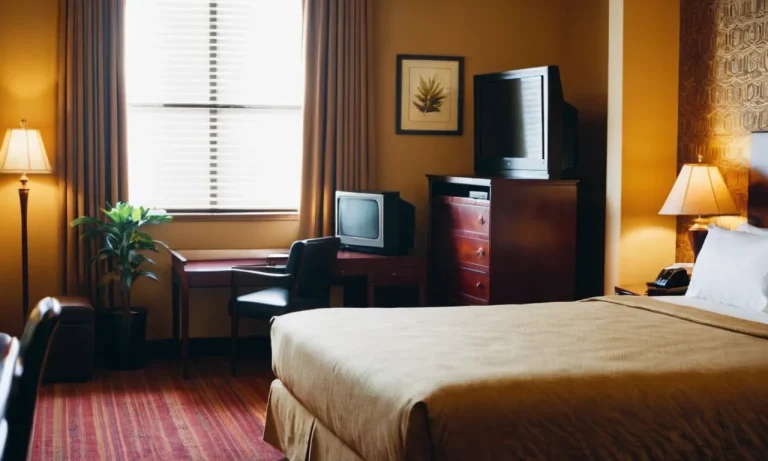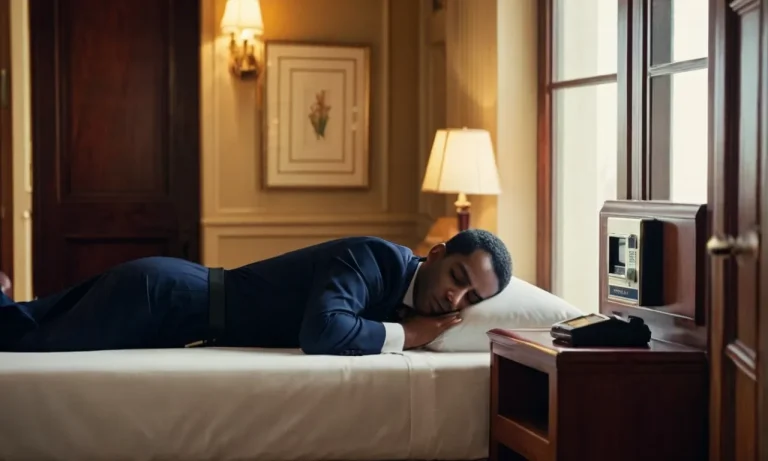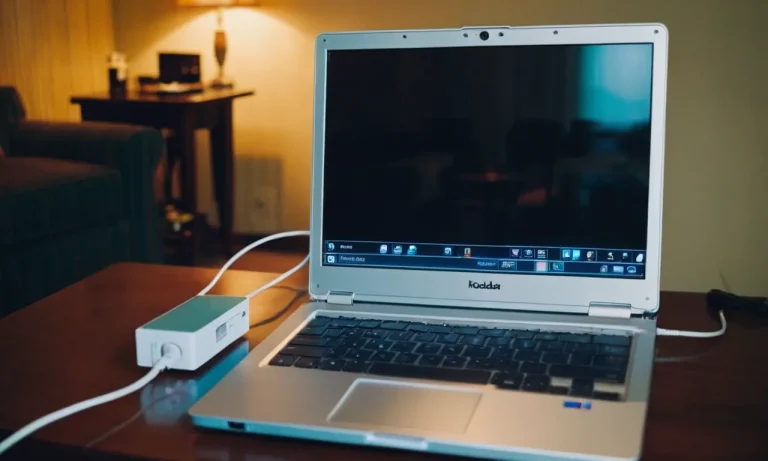Can You Bring Your Own Alcohol To A Hotel In India?
Traveling to India and wondering if you can bring your own alcohol to your hotel? This is a common question that many tourists have, and the answer can vary depending on the specific hotel’s policies and the state’s liquor laws.
If you’re short on time, here’s a quick answer to your question: In most cases, you are allowed to bring your own alcohol to hotels in India, but there are some exceptions and restrictions to be aware of.
In this comprehensive guide, we’ll explore the legalities, hotel policies, and practical considerations surrounding bringing your own alcohol to hotels in India. We’ll cover topics such as state-specific liquor laws, hotel rules, and tips for responsible consumption.
Understanding India’s Liquor Laws
When it comes to bringing your own alcohol to a hotel in India, it’s essential to understand the complex web of liquor laws that govern the country. India is a diverse nation with varying regulations across its 28 states and 8 union territories, making it crucial to be aware of the specific rules in your destination.
Let’s delve into the key aspects of India’s liquor laws.
State-Specific Regulations
Each state in India has its own set of laws and policies regarding the sale, possession, and consumption of alcohol. Some states are more liberal, allowing the possession and consumption of alcohol within certain limits, while others have stricter regulations or even prohibit alcohol entirely.
For instance, states like Rajasthan and Goa are relatively more relaxed, while Gujarat and Bihar are dry states where the sale and consumption of alcohol are prohibited.
It’s crucial to research the specific regulations of the state you plan to visit, as they may have varying rules regarding bringing your own alcohol to hotels, possession limits, and permitted alcohol types.
Dry Days and Prohibited Areas
Even in states where alcohol is legal, there may be designated “dry days” or specific areas where the sale and consumption of alcohol are prohibited. These restrictions are often imposed on national holidays, religious festivals, or during elections.
Hotels and restaurants in these areas may be required to abstain from serving alcohol during these periods.
Additionally, certain areas within states, such as religious sites or educational institutions, may have strict prohibitions on alcohol consumption or possession. It’s advisable to check with local authorities or your hotel about any such restrictions in the area you plan to visit.
Legal Age for Alcohol Consumption
The legal age for alcohol consumption in India varies from state to state, ranging from 18 to 25 years old. The most common legal drinking age is 21 years, but it’s essential to verify the specific age limit in the state you plan to visit.
Hotels and establishments typically enforce these age restrictions strictly, so be prepared to present valid identification if requested.
It’s worth noting that according to the National Policy on Liquor, the overall trend in India has been towards stricter regulations and higher legal drinking ages to curb alcohol abuse and promote responsible consumption.
Staying informed about the latest updates and complying with the local laws is crucial when it comes to bringing your own alcohol to hotels in India.
Hotel Policies on Bringing Your Own Alcohol
When it comes to bringing your own alcohol to a hotel in India, the rules can vary greatly depending on the establishment’s policies. Some hotels are more lenient, while others have strict regulations in place.
It’s crucial to understand these policies beforehand to avoid any potential issues or fines during your stay.
Corkage Fees and Restrictions
Many hotels, especially luxury ones, allow guests to bring their own alcohol, but they may charge a corkage fee for opening and serving it. This fee can range from a few hundred rupees to over a thousand, depending on the hotel’s policies.
Some hotels may also restrict the types of alcohol you can bring, such as limiting it to wine and beer only. According to a survey by HospitalityNet, around 68% of luxury hotels in India charge corkage fees.
Luxury Hotels vs. Budget Accommodations
Generally, luxury hotels are more likely to allow guests to bring their own alcohol, as they cater to a high-end clientele who may have specific preferences. However, budget hotels and smaller accommodations may have stricter rules or even prohibit outside alcohol altogether.
This is often due to licensing regulations or concerns about potential disturbances. A study by ResearchGate found that only 32% of budget hotels in India allow guests to bring their own alcohol.
- Luxury Hotels: More lenient policies, corkage fees
- Budget Accommodations: Stricter rules, may prohibit outside alcohol
Checking with the Hotel in Advance
To avoid any surprises or disappointments, it’s always best to check with the hotel in advance regarding their policies on bringing your own alcohol. This way, you can plan accordingly and ensure a smooth and enjoyable stay.
Some hotels may even provide special discounts or packages for guests who purchase alcohol from their in-house bar or restaurant. Don’t be afraid to ask questions and clarify any concerns you may have. After all, a little preparation can go a long way in ensuring a hassle-free vacation! 😊
Remember, while bringing your own alcohol to a hotel in India is possible in many cases, it’s essential to respect the establishment’s rules and regulations. Responsible consumption and consideration for other guests are key to maintaining a pleasant atmosphere for everyone.
With a little research and planning, you can enjoy your favorite beverages while still adhering to the hotel’s policies. Cheers! 🍷
Practical Considerations and Tips
Responsible Consumption
While it may be tempting to bring your own alcohol to a hotel in India to save money or have your preferred drinks on hand, it’s crucial to consume responsibly. Excessive drinking can lead to unpleasant situations, compromised safety, and potential legal issues.
According to Statista, the average alcohol consumption per capita in India was approximately 5.8 liters of pure alcohol in 2019. However, responsible consumption means being mindful of your limits and respecting the local culture and laws.
Respecting Local Customs and Cultures
India is a diverse nation with a rich tapestry of cultures and traditions. Some regions or communities may have stricter attitudes towards alcohol consumption or prohibit it altogether. It’s essential to be respectful and mindful of local customs and beliefs.
Consuming alcohol in public places or engaging in disruptive behavior could be seen as offensive and may lead to unwanted consequences. As a visitor, it’s wise to research and understand the local norms and customs before indulging in any alcohol-related activities.
Tip: Check with your hotel or local authorities regarding the rules and regulations surrounding alcohol consumption in the area.
Alternatives to Bringing Your Own Alcohol
If bringing your own alcohol is not an option or you prefer to explore local offerings, there are several alternatives to consider. Many hotels in India have bars or liquor stores where you can purchase a variety of alcoholic beverages, often at reasonable prices.
Additionally, exploring local breweries, wineries, or distilleries can be a fantastic way to immerse yourself in the region’s unique flavors and traditions. 😍
For those seeking a more adventurous experience, you could join a guided tour or tasting session to learn about the local alcohol culture and sample regional specialties. This not only provides an opportunity to try new drinks but also offers insights into the history and cultural significance behind them.
Alternatively, if you’re not inclined to consume alcohol, India offers a plethora of delicious non-alcoholic beverages, such as lassi, chaas, and fresh juices, that can quench your thirst and provide a refreshing taste of the local cuisine. 🍹
Tip: Be open to trying local alcoholic or non-alcoholic beverages – you might discover a new favorite!
FAQs and Common Concerns
Can I Bring Alcohol from Duty-Free Shops?
Yes, you can bring alcohol from duty-free shops into hotels in India. According to the Indian Customs Act, you are allowed to bring a certain quantity of alcohol for personal consumption without paying any additional duty.
The allowance is typically 2 liters of alcoholic beverages for Indian residents and 1 liter for tourists. However, it’s always a good idea to check the latest rules and regulations before traveling.
It’s worth noting that some states in India have different regulations regarding the possession and consumption of alcohol. For example, in states like Gujarat, Bihar, and Nagaland, the sale and consumption of alcohol are prohibited or heavily restricted.
So, even if you bring alcohol from duty-free shops, you may not be able to consume it in these states or in hotels located within their boundaries. It’s crucial to research the local laws and regulations of your destination before making any plans.
What Happens if I Violate Hotel or State Rules?
Violating hotel or state rules regarding alcohol can lead to serious consequences. Hotels have the right to impose fines, evict guests, or even involve law enforcement authorities if guests are caught consuming outside alcohol on their premises.
😬 In some cases, hotels may confiscate the alcohol or charge a hefty “corkage fee” for allowing you to consume it on their property.
Similarly, violating state laws related to alcohol possession or consumption can result in hefty fines, legal action, or even imprisonment, depending on the severity of the offense. It’s crucial to respect and abide by the rules and regulations set by the hotel and the state authorities to avoid any unpleasant situations or legal complications. 🚨
Is It Safe to Consume Outside Alcohol in Hotels?
While it may be tempting to bring your own alcohol to save money, it’s generally not recommended to consume outside alcohol in hotels unless explicitly permitted by the hotel’s policies. Hotels have strict quality control measures in place to ensure the safety and authenticity of the alcohol they serve.
Outside alcohol may not have undergone the same quality checks, and its consumption could potentially pose health risks.
Additionally, consuming outside alcohol in hotel rooms or public areas may violate the hotel’s policies and could lead to disciplinary action or even legal consequences, as mentioned earlier. If you’re concerned about the cost of alcohol at the hotel, it’s better to explore alternative options, such as visiting local bars or pubs, where the prices may be more reasonable.
💰
According to a survey conducted by Hotelier India, around 35% of hotels in major cities have reported incidents of guests bringing outside alcohol onto their premises, which can lead to disputes and potential legal issues.
Therefore, it’s always advisable to follow the hotel’s rules and regulations to ensure a safe and enjoyable stay. 🏨
Conclusion
Bringing your own alcohol to hotels in India can be a convenient option, but it’s essential to understand and respect the local laws and hotel policies. By following the guidelines outlined in this article, you can ensure a hassle-free and enjoyable stay while being mindful of cultural sensitivities.
Remember, responsible consumption and respect for local customs should always be prioritized. If you have any doubts or concerns, it’s best to consult with your hotel or local authorities for the most up-to-date information.
Ultimately, being an informed and respectful traveler will not only enhance your experience but also contribute to fostering a positive relationship between tourists and the local community.








